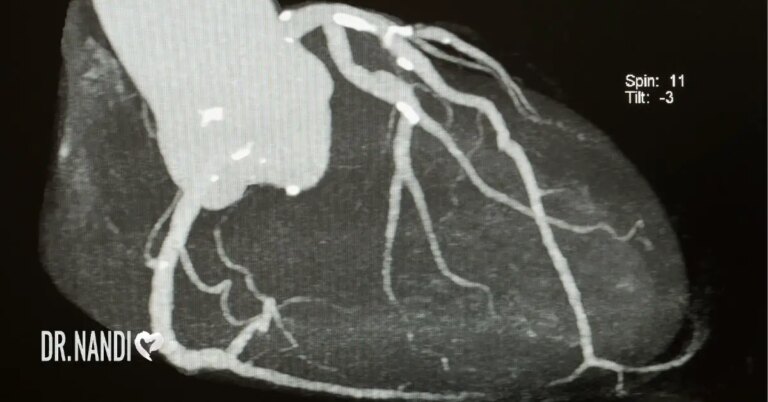Despite its name, heartburn doesn’t actually have anything to do with the heart. Its symptoms, however, can be confused for heart attack or heart disease, depending on the severity.
What Is Heartburn?
Heartburn is an uncomfortable, burning irritation in the esophagus, which is the tube that connects your stomach to your throat. Sometimes, the stomach acid can become upset or get backed up (acid reflux or GERD) and cause pain in your chest or under your breastbone. Heartburn is a symptom of a disease called GERD or Gastroesophageal Reflux Disease.
Symptoms Of Heartburn
- Burning pain in chest, under breastbone, or throat
- Rising burning or pain, sometimes all the way up to the jaw
- Indigestion-like pain
- Foul taste in mouth
- Consistent acid reflux
What Causes Heartburn?
Heartburn happens when the lower esophageal sphincter (LES) allows too much stomach acid to slip through into your esophagus. The LES is essentially the gateway into your stomach, and when functioning properly, it will open and close to allow food through. When it doesn’t close tightly enough, that’s when the acid gets through and causes heartburn.
Triggers/Risk Factors For Heartburn
- Overeating – This is one of the most common cause for heartburn. If the stomach is too full, the LES has a more difficult time functioning properly and closing tightly.
- Certain Foods – Foods such as spicy foods, onion, citrus fruits, tomato products, fatty or fried foods, peppermint, chocolate, alcohol, carbonation, and caffeinated beverages are all common triggers for heartburn.
- Medications – Occasionally heartburn can be a side effect of certain medications. Anxiety medications, antidepressants, some high blood pressure medications, nytroglycerin, osteoporosis medications, and pain relievers are some examples of medications that can trigger heartburn.
- Eating Before Bedtime – If you eat right before bed, this can upset your digestive process and trigger heartburn. Allow at least two hours for your body to properly digest before bed.
- Exercise – Certain workout positions such as sit-ups or crunches that require increased pressure on the abdomen can trigger heartburn. Heartburn can be worse if you work out after eating.
- Smoking – Smoking causes the LES to relax and allow stomach acid through, triggering heartburn.
Treatment Options For Heartburn
If you are experiencing heartburn and seeking relief, there are several approaches you can take. You can take a medication approach, some of the over-the-counter options include:
- Antacids, which can help neutralize stomach acid
- H-2-receptor antagonists (H2RAs), which can reduce stomach acid.
- Proton pump inhibitors, which can also reduce stomach acid. Proton pump inhibitors can help heartburn but also heal esophageal damage or esophagitis.
If you try over-the-counter medications and they don’t seem to be effective, you can consult your doctor for a prescription medication.
If you’d rather not take any medication for heartburn, you can take a more alternative or natural approach. Alternative approaches include:
- Aromatherapy
- Gentle exercise
- Relaxing meditation
- Massage
These approaches can help especially if you experience high levels of stress and/or anxiety, which can worsen heartburn symptoms otherwise.
You can also give apple cider vinegar (ACV) a try. This natural approach may seem counterproductive, but ACV has been known to help balance and/or neutralize stomach acid. The simplest way to take it for heartburn is to dilute a few glops of it in water and drink it, you can add a bit of honey to help with the taste.
If you want to take a preventative approach to heartburn and do what you can to avoid it altogether, here are a few lifestyle shifts you can make:
- Pay attention to your diet and follow a healthy food plan
- Avoid eating before lying down, sit up straight when eating
- Avoid straining yourself with heavy lifting
- Avoid triggering foods (listed above)
- Reduce/quit smoking
- Exercise regularly
- Keep your meals small, avoid stuffing yourself
- Review current medications you may be taking and see if they can trigger heartburn, if so, consult your doctor about how you can reduce heartburn side effects
When To See A Doctor
Heartburn typically only lasts from a few minutes to a couple hours. Experiencing it occasionally is very common and rarely a cause for concern. However, if you’re experiencing frequent heartburn (three or more times per week), you likely are suffering from gastroesophageal reflux disease (GERD), which if left untreated it can lead to some more serious conditions, such as:
- Inflammation or ulcer in esophagus
- Trouble swallowing
- Barrett’s esophagus, which is precancerous
- Esophageal cancer
If you feel like you’re experiencing heartburn consistently or far too often (more than twice a week) or if it seems like the symptom of a bigger condition, it is highly recommended that you seek medical attention.
Heartburn can be very uncomfortable and even cause worry if it’s not understood. It’s absolutely manageable though and if you make the right moves to help relieve and prevent it, it can be treated effectively. Again, if it becomes persistent consider seeking medical attention.
Have any additional questions that we can help answer? Reach out and let us know, we would love to hear from you and help you out however we can.
[/fusion_text][/fusion_builder_column][/fusion_builder_row][/fusion_builder_container]




















